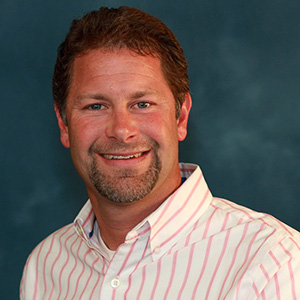
Paul Morris
Q. Why and how did you get into project management?
I got involved with project management in the late 90s. I found that I was doing what most people thought of as project management. I first got started with my job for the City of San Diego in 2001. I was asked to find training, so I researched and found San Diego State University’s Project Management Certificate Program. I ended up being a student and that turned into me being certified as a project management professional in 2005; along with becoming an internal project manager for the City of San Diego. As a student of the program, I was asked to fill in for an instructor in 2005, and here I am.
Q. Tell me something about PM that most people don’t know.
That there is actually a methodology in project management. There is a reason why certain things are done, and why they are done in a certain order. For example, I am currently teaching the Scope, Time, and Cost class, and I teach why you want to determine the scope of work first. Before I do something I should plan it out, and have a list, so I don’t forget things, or buy things I don’t need. And after that it’s the schedule. How do I shop? What order do I complete tasks? After I know that information I can tie in budgets or tie in resources. One of the things that I see most likely happens in other organizations is that they just call themselves project managers and they are just winging it. They learn more from their mistakes and they forget to capture those mistakes and learn from them over time.
Q. What are the class takeaways?
PM involves working with other people – how do you work with other people from different backgrounds and from different cultures, and everyone comes in with different experiences. The class provides this hands-on experience: working with people you don’t really know; getting to understand how to work together and how to negotiate to get things done; sharing experiences to accomplish a common goal; and, getting buy-in by cooperating and communicating with each other. Communication is key. How do you capture information? How do you share that information? How do you actually get things done and communicate it successfully so that everyone has a common understanding?
Q. Do you think like a project manager at home?
Yes, I think when I was growing up; I wanted to be a fireman or a president. I’ve always asked what the process is; what’s the flow of getting things done. So, I guess I’ve always thought like a project manager. And, yes it’s hard to turn that off at times. I look at how things are broken down into projects at home, which doesn’t always work for things that are not truly project related.
Q. So do you think there are certain personalities that excel in PM?
You know it’s interesting, I had a student once say “I like project management, but I just don’t like working with people.” I said the downside to that is that you have to work with people. Projects are about working with others, so I think the biggest thing is that most people need to know how to work with others. You have to ask yourself, how do I understand body language? How do I understand and accept other people’s differences and use those to actually support the project? Because bringing together those differences and channeling that energy and the way people think about things into getting results is what’s important in managing a project, because there is a lot of conflict between personalities.
Q. What do you find the most interesting about PM as a career choice?
I find it interesting because every project is different. I enjoy the networking of working with different groups of people each time. I’m not coming in each day and doing the same thing each day, year in and year out. Every project has a limited life cycle and every project involves different resources and people. For me, it’s the people interaction and it’s that I’m constantly learning myself, learning from other people, working on challenging projects and trying to achieve goals. I also enjoy the chaos of projects, there’s always that time when something goes wrong and the need to be flexible. I enjoy that challenge because it keeps things fresh.
Q. Give me three adjectives that describe PM.
Challenging, frustrating, enlightening.
Q. Where do you see PM going, long term?
I think long term, there’s definitely growth in PM. There’s going to be a growth in PM offices and organizations. Organizations having a department being devoted to managing projects and overseeing project managers so that they can be standardized within each organization, because project management is handled differently within each organization, each specialty, whether its software or shipbuilding or whatever that may be. The other thing that I see growing is the fact that resources won’t be together. People will interact with people via phone and via videoconferencing, so they are not always going to be together and that comes back to communications. Project management is going to have to be more effective and communicate with how they stay in touch with each other, so that everyone is on the same page because people are going to be more spread out. I’ve seen project management deal with more and more people offshore or internationally on projects, so I think there is an expansion there on PM.
Q. Anything I haven’t asked that’s important for people wanting to take a PM course?
I think people don’t realize how expansive PM is in everyday life. Moving to a new location is a project; upgrading the way you live or remodeling is a project. So project management can be applied to everybody’s life in some way, not just via your work. I think what most people need to understand is that as much as project management has a framework and methodology for how things are done, it also can be scalable to fit any needs.
Q. Why is it important to take a PM course?
I think one of the reasons it is important to take courses is the fact that students can learn to find those missing pieces of where they struggle at times in projects. They can learn as to why they had issues. What are the tools and techniques I can take away and apply now to make my projects better, how can I learn from my lessons learned and capture proper lessons learned so that I can apply that learning to my next project.
Q. Any last thoughts?
Take project management! Anybody and everybody can learn something from taking PM classes, whether they apply it to the job or apply it to their lives. PM makes projects more efficient and effective.




